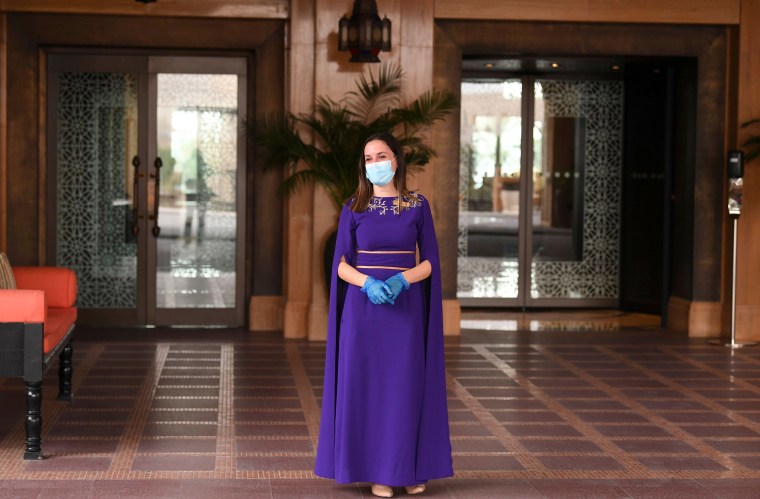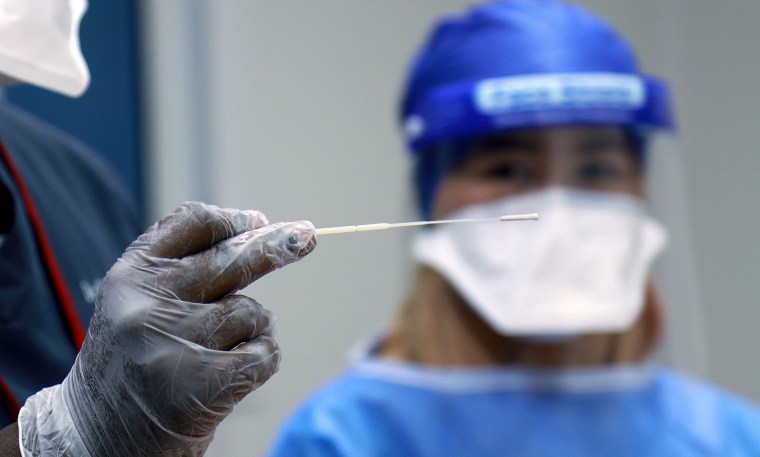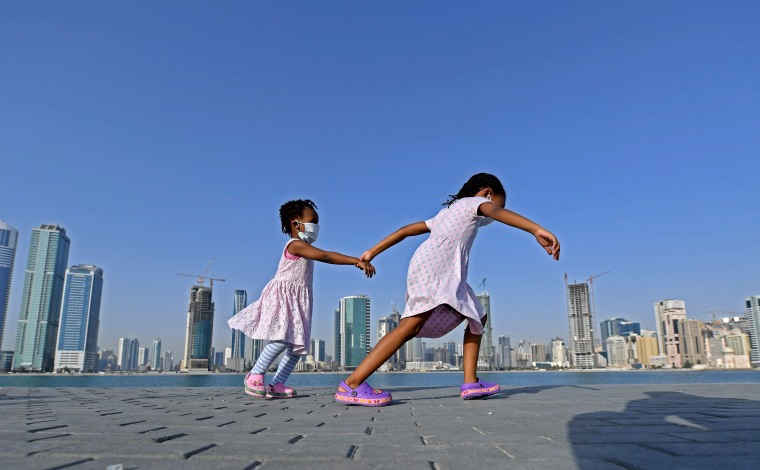A huge spike in coronavirus cases in the Middle East, where many have been observing the Islamic month of Ramadan, has led countries to extend and reinforce lockdown measures during this weekend's Eid holiday.
The largest number of cases of COVID-19, the disease caused by the virus, has been in Saudi Arabia, which normally sees millions of Muslims descend on the holy cities of Mecca and Medina during Ramadan. In response to the outbreak, the kingdom closed off the religious sites, with stark images of empty mosques and sacred sites circulating online.
But despite such measures, the number of cases has only grown in Saudi Arabia, passing 50,000 on Saturday and ballooning to 62,545 as of Wednesday — with 339 deaths — according to the Ministry of Health.
The rise has been attributed to illegal family visits, including meeting to break fast together, street vendors remaining open and people gathering in shops, the ministry said in a statement, with cities such as Mecca and Riyadh particularly affected.

Ministry spokesman Muhammad Al-Abdulaali said in a statement that around 60 percent of those infected were non-Saudi residents and that the country was carrying out more than 15,000 tests per day to combat the disease.
"The spread of the virus is under control, and the rise in the number of the Kingdom COVID-19 cases is attributed to the increase in the lab tests, which facilitate early detection of cases," he said.
But he noted that "social gatherings continue to contribute to the increase in infection cases."
Millions of Muslims are preparing to celebrate the end of Ramadan with the Eid al-Fitr holiday this weekend, normally marked by public prayers in the mosque, family visits and grand communal meals.
But as cases continue to rise, Saudi Arabia has announced the whole country will remain locked down with strict curfews in place and gatherings limited to five people, according to the Ministry of Interior.
In nearby Qatar, cases have also shot up.
The gas-rich country has recorded 16 deaths and has over 30,000 active cases, officials said. All shops have been ordered to stay closed until the end of the month, except for pharmacies and grocery stores.
Residents must also wear masks when outdoors or risk fines of up to $55,000 or imprisonment of up to three years.
The chair of the Qatari National Strategy Group to fight COVID-19 blamed the rise on a "lack of commitment of many members of society to preventive measures," during a news conference on Wednesday.

Elsewhere, the United Arab Emirates confirmed it would expand its nightly curfew, which started May 20. Although some public transport and private hotel beaches have reopened, shopping malls remain only partially open.
Kuwait has also imposed stringent penalties for not wearing a mask in public, with up to three months in prison and a $16,000 fine, the Kuwaiti Ministry of Health said. The country has also canceled Eid celebrations, introducing a full curfew until May 30, to stem the spread of the disease.
Meanwhile, war-torn Yemen reported its first COVID-19 case in April. The United Nations has since warned that the disease is spreading undetected in a country where almost 80 percent of the population already relies on aid.
"Yemen cannot face two fronts at the same time: a war and a pandemic," U.N. Special Envoy Martin Griffiths said last month.

There has been a patchy ceasefire in place between the Saudi-led coalition and Houthis during Ramadan, but coronavirus cases continue to rise in a country whose health infrastructure has almost collapsed.
The humanitarian charity Save the Children reported a surge in COVID-19 cases in Aden this week with 385 deaths, in an area where many medics have deserted hospitals and those still working face a dangerous lack of protective personal equipment.

